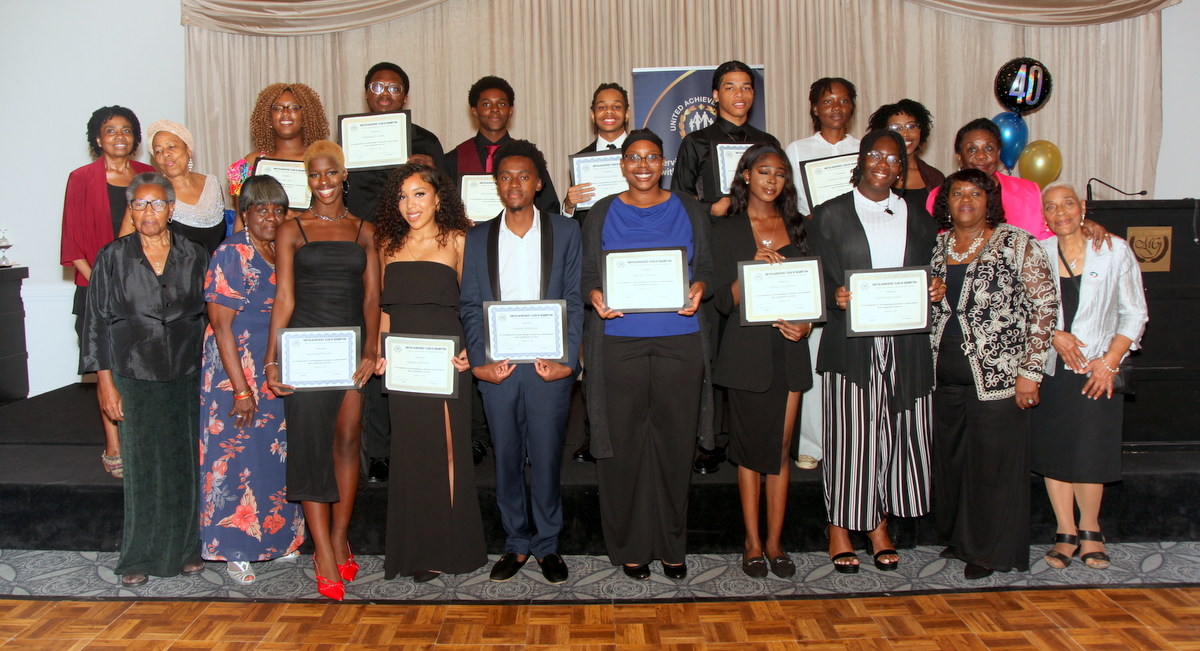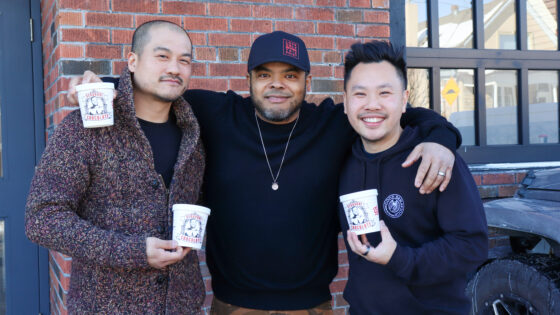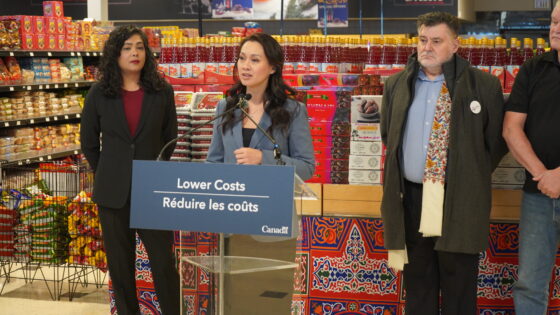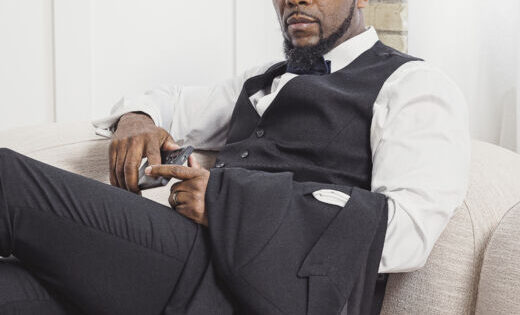on
BY PAUL JUNOR
The United Achievers’ Club continues to make a difference in the lives of promising and exemplary students through its scholarship program. This was evident in the show of support by: family members, community members and well-wishers at its 40th Annual Scholarship and Recognition Awards held on Saturday, September 14th, 2024, at the Mississauga Grand Banquet & Event Centre. It was truly a great evening of celebration as the smiles on the faces of the recipients attest to the importance of this event.
In the program, Joyce Temple-Smith, President of the UAC writes, “We are thrilled to welcome you here tonight. We would especially like to give a special welcome to the 12 well-deserving young recipients. They are truly a beacon of hope for our future. I would like to recognize and congratulate their parents and guardians. They were able to encourage and inspire these young people to pursue academic excellence when there is much distraction around all of us.”
Patrick Brown, Mayor of Brampton states, “Since 1980 the United Achievers Club has raised the profile and consciousness of Black and Caribbean communities in the wider society. Your members have provided effective and meaningful role models for our youth. It is great to see the integration of the Black and Caribbean cultures into the wider community; and to link with existing community services to provide educational resources.”
Dr. Darlene A Weekes, anesthesiologist at Children’s Hospital of Eastern Ontario (CHEO) writes, “I would like to express my sincere congratulations to the recipients of the 2024 United Achievers’ Club Scholarships. You have demonstrated a great commitment to your studies and community and are an inspiration to me and others. I have no doubt that the foundation you have created through your focus and hard work will only help as you continue to pursue your goals. I encourage you to humbly remember those who are less fortunate and seek opportunities to assist and provide leadership. I wish you continued success in all future endeavors. Congratulations!”
Charles Matthews Jr served as the master of ceremony of the evening’s program. He is well-known for being an avid supporter of many community events. He is the CEO of CMJ Entertainment Inc and in 2023 received the Community Award from the UAC. BePraize Saw was the featured performer and he serenaded the crowd with his emotionally moving and entertaining pieces on the saxophone.
The keynote speech was delivered by family lawyer, Shawn Knights. He was a previous recipient of the UAC scholarship in 1999. His speech was motivational in nature as he commends the recipients for their: hard work, dedication, and perseverance. He is confident that they will continue on the path of excellence, on their road to greatness.
There were twelve scholarships that were awarded to these recipients:
Ifeoluwa Diri
She graduated from Brampton Centennial Secondary School, and will be pursuing Liberal Arts and Professional Studies at York University.
Ronell Glasgow
She graduated from Turner Fenton Secondary School, and is enrolled in the Building Renovation Technology Program at George Brown College.
Jahmarley John
He graduated from Central Peel Secondary School, and is enrolled in the Civil Engineering program at Humber College.
Nathan Johnson
He graduated from Louise Arbour Secondary School, and is enrolled in the Building Renovation Technology Advanced Diploma Program at George Brown College.
Abigail Joseph
She graduated from Rick Hansen Secondary School, and is enrolled in the Liberal Arts and Professional Studies at York University.
Garvellia Livert
She graduated from North Park Secondary School, and is enrolled in the Honours Bachelor of Computing Program at Queen’s University specializing in Cyber Security.
Kaiya Matthews
She graduated from Mayfield Secondary School, and is enrolled in the Bachelor of Fine Arts Program (Performance Dance) at TMU
Nicholas McClean
He graduated from Mayfield Secondary for the visual arts program, and is enrolled in the Architecture Technology Program at Humber College
Cienna Mitchell
She graduated from St. Edmund Campion Catholic Secondary School, and is enrolled in the BSc in the Health Sciences program at Wilfrid Laurier University.
Calvin Ssebyala
He graduated from Turner Fenton Secondary School, and is enrolled in the Honours Geography and Environmental Management Co-op program at the University of Waterloo.
Horecia Williams
She graduated from Lincoln Alexander Secondary School and is enrolled in the Honours Bachelor of Science in Computer Science at the Mississauga campus of the University of Toronto.
Aloni Wilson
She graduated from St. Marguerite d’Youville Catholic Secondary School, and is enrolled in the BSc degree in Social Sciences at McMaster University.
I spoke to Dr. Camille Logan during the course of the evening. She is proud of the fact that 10 of the 12 recipients graduated from PDSB’s schools.
President Joyce of UAC and PDSB’s Trustee Kathy McDonald presented the community award to Inspector Joy Edwards and the appreciation awards to the Kiwanis Club of Brampton. The Kiwanis Club has been instrumental in the amount that they contributed to the scholarships over the years. They have given about $150,000 for over 25 years towards the UAC scholarships.
Doreen Manning and Marva Hemmings presented a cheque for $2,907.00 to the William Osler Health System Foundation (WOHSF).
Stay in the loop with exclusive news, stories, and insights—delivered straight to your inbox. No fluff, just real content that matters. Sign up today!
With a last name that means “Faithful and loyal,” it is no wonder that Paul Junor has become a welcomed addition to the Toronto Caribbean Newspaper Team. Since 1992, Paul has dedicated his life to become what you call a great teacher. Throughout the years, he has formed strong relationships with his students and continues to show them that he cares about them as people. Paul is a warm, accessible, enthusiastic and caring individual who not only makes himself available for his students, but for his community as well.













